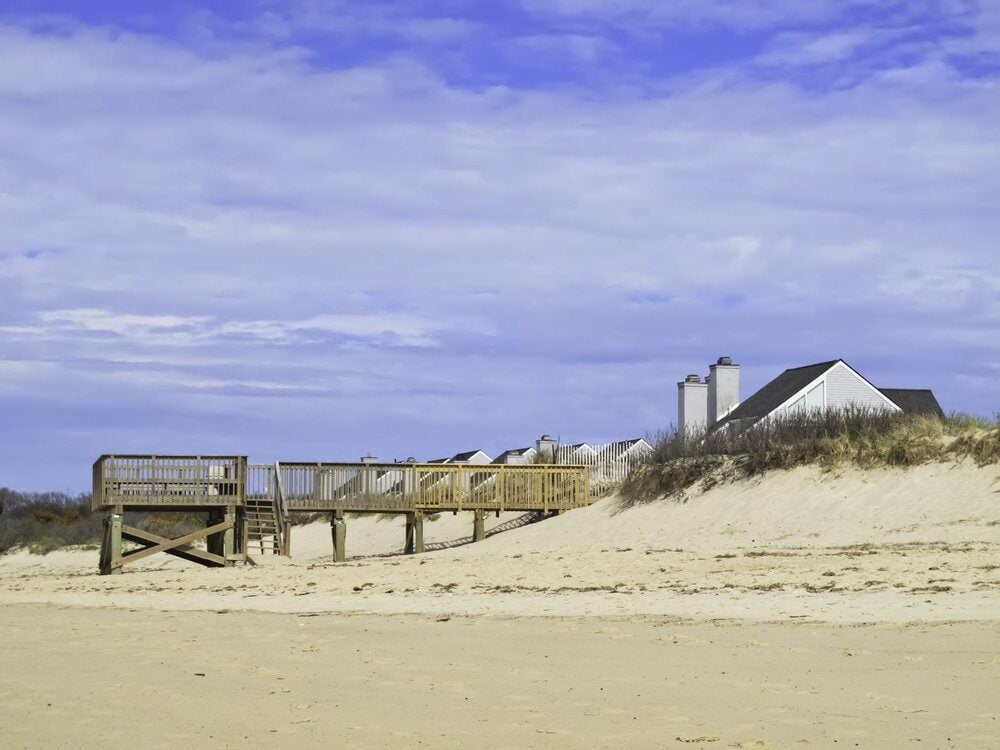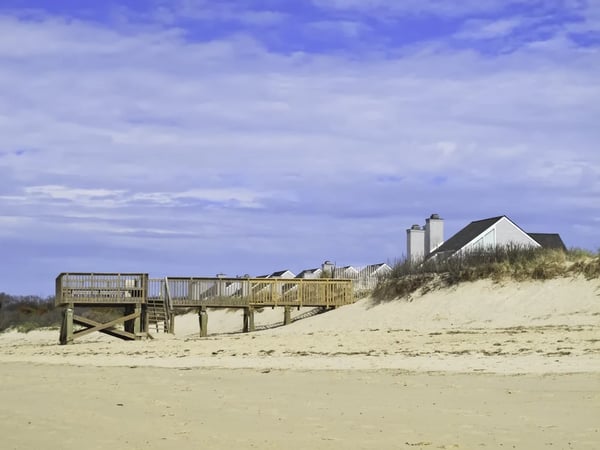
So the time has come to make some additions to that beautiful home that you bought last spring. One of those additions is tearing down the old deck and building a new one.

Building Your Dream Lakeside Deck: Planning for Easy Access and Springtime Enjoyment
The plan is to make this one bigger and better, maybe even build stairs going down to the lake. This way you have easy access to the boat house.

You start meeting with contractors to get the plans and budget together. You have finally agreed on everything and you want to start building as soon as possible.
You want to have that deck ready for the spring.
STOP RIGHT THERE!!!!
You could be getting ready to build a disaster or even be in the middle of a disaster without even realizing it. Before you build a single thing or tear down a single thing you want to verify a few things.
- Special flood hazard area
- Base flood elevation level
The first thing that you want to verify is if you are going to build this beautiful deck in a special flood hazard area or if you current deck is in one. If your current deck is in one more than likely the bank would have notified you.
What is a special flood hazard area and how would it impact the deck you are going to build?
According to FEMA a special flood hazard area is is the area where the National Flood Insurance Program also known as NFIP floodplain management regulations must be enforced and the area where the mandatory purchase of flood insurance applies.
How Flood Zones Could Impact Your Deck and Property Value
So how exactly would this impact your deck?
Well this is how flood maps work. If a structure is within that special flood hazard area flood insurance is required if there is a mortgage on the property. So if you decide to build that deck in that area and the stairs fall within the special flood hazard area then you could place your entire home in the special flood hazard area.
Every property owner is always thinking about how can I increase my property value?
Well building this deck could possibly decrease your property value 10-20%.
Properties that are located in the special flood hazard area generally take longer to sell.
One reason is its an extra cost to the new property owner compared to properties that are not located in these special flood hazard areas.
So what do you need to do then?
Well before building you want to verify if there is a base flood elevation on your property.
Ensuring Compliance and Safety: Steps to Build Above Base Flood Elevation
What is a base flood elevation?
Then you want to make sure that all the steps and and any support for the structure is above the base flood elevation. We usually recommend by at least a foot because it is not uncommon for the FEMA to change the base flood elevation in areas after flood insurance studies have been completed.
Who can you contact to make sure these things are correct for you?
We usually recommend contacting a surveyor or engineer that can do an elevation survey of the whole property, this way you know where the rest of your home is located.
Also here's 5 questions to ask a surveyor?
- Are they licensed?
- How long have they been doing this work?
- How long will the process take?
- What if some information on the certificate is wrong?
- Am I going to get photos?
Understanding Surveyor Responsibilities and Managing Existing Decks in Flood Zones
We quickly listed above 5 questions to ask a surveyor but pay very close attention to question number 4. It's important to understand what a surveyor can and can't be held responsible for on an elevation certificate. Lets talk about three areas and if they are responsible
- Building Diagram
- Elevation numbers
- Address
- Vent size
Out of the four things listed above a surveyor is only responsible for the elevation numbers. Now if it is a professional engineer its a little bit different story.
So what do you do if some of the information is wrong?
Well normally most surveyors will correct these like the building diagram or address for you. Even though they are not responsible for it. The building diagram tells FEMA or the flood insurance company the foundation type of the property.
So you may ask what is the importance of elevation numbers?
Remember two things drive flood insurance rates.
- Elevation
- Location
So the higher you are above the base flood elevation the lower the flood insurance rate. The lower the elevation is below the base flood elevation the higher the flood insurance rate.
So we have talked about that new deck you want to build but what if you already have a deck that is in this special flood hazard area.
What can you do?
Well there are a few options here, but let's discuss what FEMA is looking for first?
Section C2h) of the elevation form states that is the lowest adjacent grade of the deck, stairs, or structural support.
Mitigating Deck Issues in Flood Zones: Protecting Your Property and Value
So these are three things you want to be concerned with if you fall within in this area and there are two options.
- Move the deck
- Tear the deck down
We mentioned how stairs can put you in a special flood hazard, we recently had a property owner that ran into this exact issue. The entire house was outside the special flood hazard area, and so was the deck except for the last two steps.
So these two steps placed the entire home into the special flood hazard area possible causing a significant on the property value and possibly an additional $50-100 a month on the mortgage.
So what could this property owner do?
Well one thing that is recommended is possibly relocating the stair case to the other side of the deck that doesn't go as far down the grade.
The other option could be tearing down the deck but no one wants to take on this cost and most times is not needed. Many times even if its structural support they can be relocated to other positions without sacrificing the integrity of the structure.
As you have seen today building a deck can cause a lot of problems. It's important to do your homework during this process, so it does not have a negative impact on your property value.
If you have further questions about how decks or maybe even swimming pools can place you in a special flood hazard area make sure to visit our website. You can also check out our YouTube channel or Facebook page The Flood Insurance Guru where we do daily flood education videos. You can also check out our Podcast.

